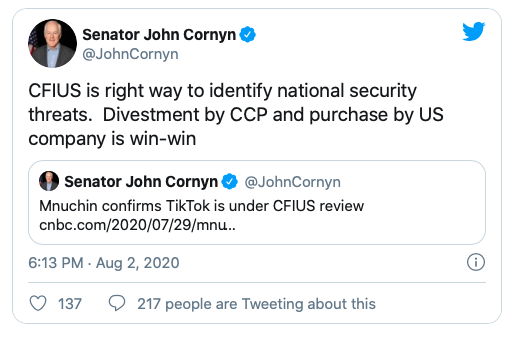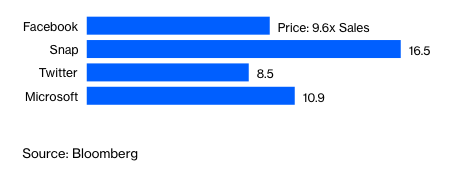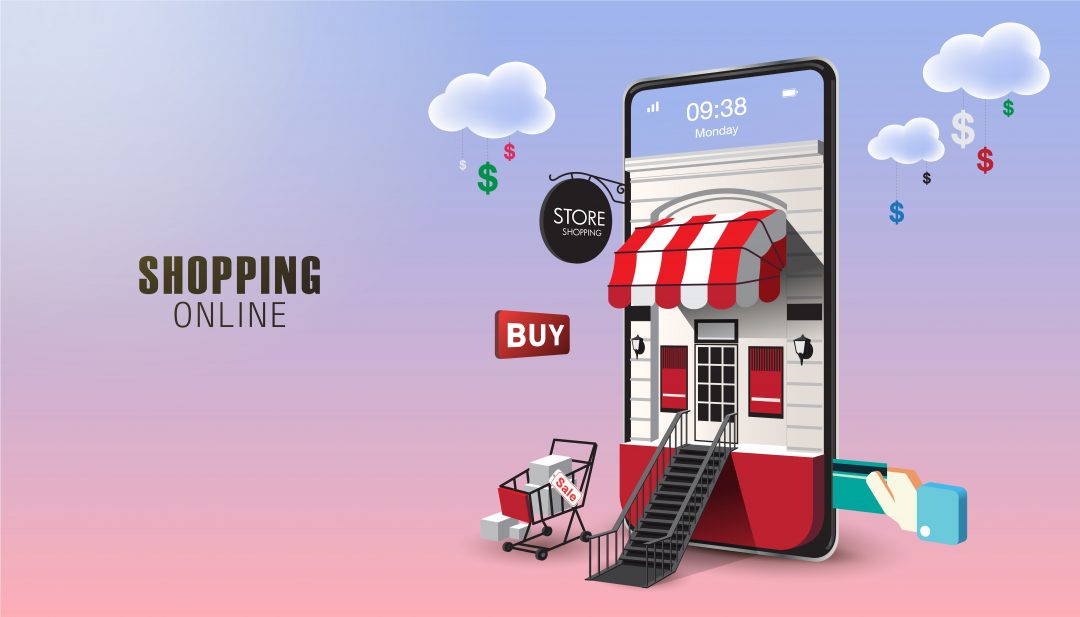For about two weeks now, we have been observing quite a bit of confusion with TikTok. The American administration has announced that one of the most popular applications in recent months is a threat to national security. President Donald Trump issued an executive order which, among other things, prohibits cooperation of any American entities with Chinese TikTok after September 15, 2020. However, the video service will probably not disappear from the US market, because Microsoft has started talks about buying the application, or at least its part (the one operating in the United States, Canada, Australia and New Zealand). They have less than 40 days to complete the transaction.

Is this the business event that we expected? I don’t think anyone was expecting it 2 months ago, but 2020 is teaching us that we should remove the word “impossible” from our dictionary (or at least hide it somewhere deep). It is difficult to determine what the real reasons for such actions of the American administration are, the ongoing trade war with China, the presidential elections in November, the dispute over the shape of the global Internet, the need to divert attention from the coronavirus crisis, the alleged threat to national security and sharing data with the Chinese government are all on the table. Instead of weighing up the importance of these reasons and proving which ones are the most important, let’s look at the (possible) transaction itself – why Microsoft’s application, which most adults associate with the mass of video showing teenagers dancing and lip syncing to fragments of well-known songs.
In early August Tim Culpan wrote in Bloomberg that TikTok could be the deal of the decade for Microsoft. Although the commentator focused mainly on the price Satya Nadella (CEO) can negotiate, it’s worth taking a broader look at what the Chinese service can bring to the American tycoon. The first thing that probably comes to mind is data (now we all see data everywhere). TikTok has 800 million users worldwide, there are about 80 million of them in the United States alone, and 60% of them are between the ages of 16-24. We associate Microsoft mainly with the software we use on our computers – the Windows operating system, Office, cloud solutions or the application that has allowed millions of people to work in recent months, namely Teams. We forget a little bit that in their portfolio of products/services they also have the Bing search engine, HoloLens glasses for mixed reality, Xbox game console, Minecraft game (from 2014) or the LinkedIn business service (from 2016). Despite the offer mentioned in the last sentence, Microsoft is very strong on the business solutions market and weaker in the area of solutions for individual consumers. The information they could obtain from TikTok could support the development of products and services addressed to the latter group, especially to young people (several attempts to appear in these groups have not been successful so far – Windows Phone, the Mixer streaming platform ). The huge pool of users involved is also a great potential for expanding Microsoft’s advertising capabilities. According to eMarketer, last year the company managed by Nadell had about a 4% share in the American advertising market. For comparison – Google has 31.6%, Facebook almost 23%. The purchase of the dynamically developing video platform gives a great chance to take some of those shares away from these two giants. Of course, it will also be a good place to promote the products and services of Microsoft itself.

The third benefit of purchasing the Chinese application may be access to its algorithm, one of the key factors of its success. TikTok works in a different way than other social media (it is debatable whether it should be evaluated in this category at all) – you don’t need to observe anyone to access their content. In the feed of recommended videos, the application provides us the work of other users, and with each of our interactions (scrolling, liking, commenting, downloading, forwarding, viewing in whole or in part, etc.) the algorithm learns what content we like, and adjusts the subsequent items displayed to this. Analysts estimate that it is probably one of the most advanced solutions active on the market – it has a great ability to engage users (one can even consider using the word “addicting”). Access to this mechanism could be invaluable for Microsoft in drawing conclusions about people’s behaviour and perhaps in using it in its other products.
What the situation will be like on September 16th is unknown – everything happens dynamically in a not necessarily predictable (geo)political situation. We do not know whether TikTok will work differently in different parts of the world, or whether users from outside the US, Canada, Australia and New Zealand will have access to the works from these countries. For the time being there is no sign that our European and Polish market will be affected in any way by the consequences of what is happening across the ocean, but (recalling the beginning of this article) we cannot say that “nothing is impossible”. It will certainly be worth observing this transaction, as it is one of the most interesting business events of the recent years.
Source:
https://www.bloomberg.com/opinion/articles/2020-08-03/tiktok-could-be-the-deal-of-the-decade-for-microsoft-ceo-nadella?sref=p0HOlX4Z
https://www.theverge.com/2020/8/3/21352309/microsoft-tiktok-acquisition-deal-why-us-countries-data

